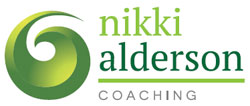A 5 minute read on what makes a vulnerable leader and the benefits of being one, with 4 strategies for developing vulnerability in leadership.
Have you ever been that person at work, knowing you are completely swamped and up to capacity, who continues to say yes to taking more on for fear it would make you look weak? Or struggled with your mental health without having the confidence to share with colleagues the fact that you could use a little extra support? Or how about being a working parent, behaving at work as if you’re not – acting like a person with no other commitments outside the office, denying your own kids – not wanting any slight chink in your armour to appear, whilst knowing a few too many plates are spinning?
How many of us make the mistake of assuming vulnerability will be perceived as weakness?
There is a growing school of thought these days that vulnerable leadership is not only the most authentic, but also the most courageous too. It was Brene Brown who, having researched and written extensively about leadership, said: “Daring leaders who live into their values are never silent about hard things.”
Inadvertently, it would appear, I have become a daring leader too. When I asked my network recently for some blog topic inspiration, one suggestion came through about vulnerable leadership, with the comment “What you are modelling right now.”
I’d never really thought of it that way before, but on reflection, I now see what was meant. I’ve been open and honest about my recent breast cancer diagnosis, something deeply personal, which many others strive fiercely to keep that way. As a consequence, I’ve had a number of people reach out to me via direct message to say thank you for what I’m doing to raise awareness around the disease – even those who have been through similar themselves, but have chosen a different, and more private approach.
Of course, no “one size fits all”. People have very good reasons for approaching things in their own way. But one inadvertent positive that has come out of taking a more public stance, has been the transition to “vulnerable” leader: apparently inspiring people to go for mammograms they’ve previously put off, or to “keep going” in the face of the disease itself, and its often brutal treatments, such as chemotherapy.
I acknowledge it’s not purely a one-way altruistic street: I have received heaps of inspiration myself, having had exposure to so many positive stories of good outcomes for cases such as my own, all of which I was oblivious to before. I grew up in an era where there was only one, unwanted, ending for people such as me, like the mums of friends in junior school, not lucky enough to see their girls through high school. From a personal point of view, it has therefore helped me massively deal with my diagnosis by owning my illness, and publicly. Each to their own.
So what strategies can I share around vulnerable leadership? What approaches have I adopted that others could use to elevate themselves in a similar way?
Here are my,
4 Strategies for developing vulnerability in leadership
1. Make peace with unpredictability
Many legal types admit control-freak tendencies, particularly apparent in the common over-achiever trait of perfectionism (read more here: https://www.counselmagazine.co.uk/articles/the-imperfections-of-perfectionism%E2%80%AC), and wonder how to get comfortable relinquishing the reigns of control. So when you challenge yourself to do things differently and put yourself “out there”, start by acknowledging that there isn’t always a way of predicting how things might land.
As Brene Brown said, “The courage to be vulnerable is not about winning or losing, it’s about the courage to show up when you can’t predict or control the outcome.” If you put your head over the parapet, clearly you lead, but equally you lay yourself open to being shot down, hence the vulnerability of that leadership. Thankfully, it’s not happened to me yet, but I’ve made peace with that possibility.
2. Adopt a Growth Mindset
It might also require us to become comfortable about making mistakes, and seeing them as learning or growth, as opposed to failure. Adopting a growth rather than fixed mindset allows you to lead with vulnerability, as you no longer fear failure and continue to take action despite it. (For more on this topic, see: https://nikkialdersoncoaching.com/growth-mindset-for-lawyers-and-law-firms-survival-and-success-for-the-perpetual-learners-in-life/)
3. Control the controllable
There is so much in life we can’t control, but what is always within our gift is how we respond to life’s challenges. I’ve chosen to show up authentically. As I’ve mentioned, the outcome of doing so is unpredictable. But of one thing I am sure: I have the power to control the controllable.
As Charlie Mackesy said: “One of our greatest freedoms is how we react to things”. This is when controlling what we can control is useful. Put another way, as the Chinese saying goes: “It’s not what life does to us that’s important but what we do with what life does to us”. Each and every one of us can, in any given moment, make a decision about our reaction to things by answering the simple question: “How do I want this moment to be?”
4. Acceptance
Become comfortable with the fact that there’s so much in life we cannot actually control, and that’s ok!! Be accepting of what we can’t.
Acceptance here is not the same as giving up or giving in, but rather being realistic about a scenario, re-thinking what is and what isn’t within our control, and knowing that whatever challenge we face, we can always face it with positivity, and even with a smile. It’s our choice. Never lose sight of that choice. It’s so empowering. As Brene Brown said: “You may not control all the events that happen to you, but you can decide not to be reduced by them”.
Putting all of these strategies into place means that not only can we lead with vulnerability but courage too, and I agree with Brene Brown that by doing so, “When we have the courage to walk into our story and own it, we get to write the ending.”
What will the ending of your story be?
Nikki Alderson Biography
Nikki Alderson, specialist coach, speaker and author, and former Criminal Barrister with 19 years’ experience:
- supports organisations, law firms and barristers’ Chambers to retain female talent; and
- empowers female lawyers to achieve career ambitions.
Nikki specialises in 3 areas:
- Women leadership transition and change;
- Enhanced career break returner support; and
- Workplace resilience, mental toughness, confidence and wellness.
She is the author of Amazon No.1 Bestseller Raising the Bar: empowering female lawyers through coaching, (https://amzn.to/3fodKQX) nominee for the Inspirational Women Awards, Champion of the Year Category and finalist in the 2020 Women in Law Awards, Legal Services Innovator of the Year and 2019 International Coaching Awards, International Coach of the Year Category.

